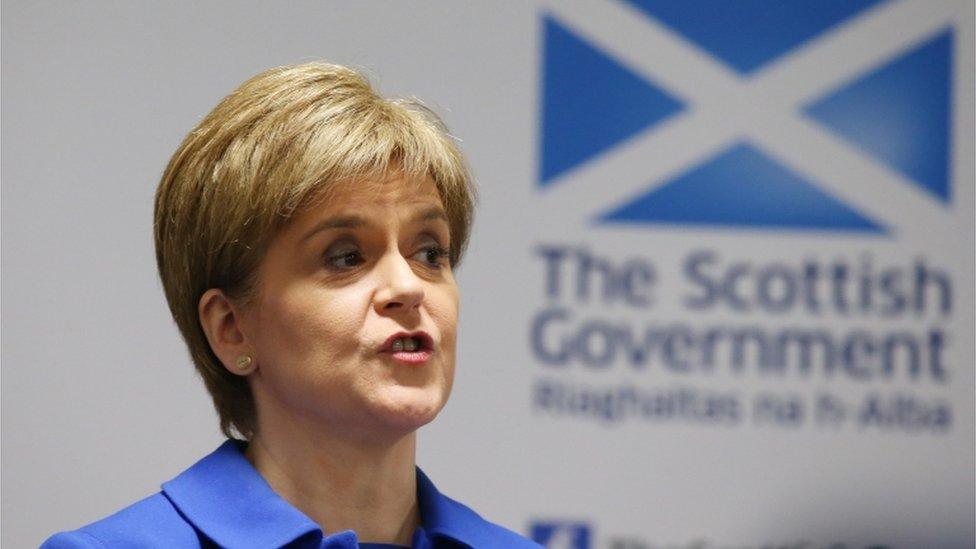Holyrood committee backs rise in council tax for top bands
- Published
- comments
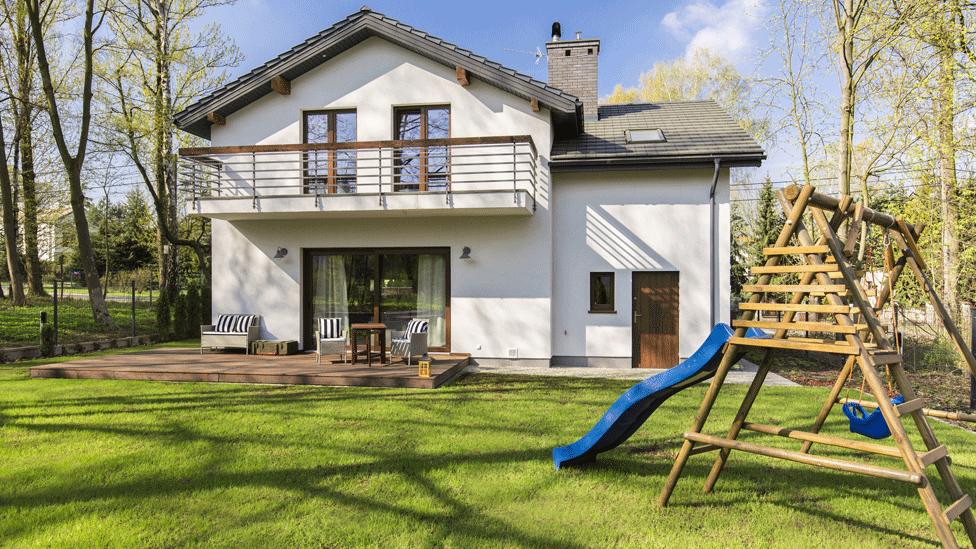
The most expensive homes in Scotland are set to be taxed more
Holyrood's local government committee has backed plans to raise the council tax for the four highest bands.
The government wants some households to pay more to raise money for education, and finance secretary Derek Mackay gave evidence to committee backing the plan.
The committee formally recommended the scheme to parliament after members voted four to two in favour of it.
Members also rejected an amendment from Green MSP Andy Wightman noting "concerns" about wider local tax plans.
The proposals would see the average band E household pay about £2 per week more, and the average household in the highest band (H) about £10 a week more.
Parliament has to pass an order, a piece of secondary legislation, to change the bands, and Mr Mackay has now won the formal backing of the committee for that. Members will submit a report to parliament, before the order is voted on by all MSPs at a later date.

The average annual increase in council tax as a result of the band adjustments would be:
band E - £105
band F - £207
band G - £335
band H - £517

Putting forward a motion to have the committee recommend the move to parliament, Mr Mackay told its members that his plans would lead to a "more progressive" and "fairer" system of local taxation.
Mr Wightman lodged an amendment to the finance secretary's motion to "note concerns" about the fact the council tax base has not been updated since 1991 and recognising the recommendation of the Commission on Local Tax Reform that "the present council tax system must end".
Labour's Elaine Smith backed Mr Wightman, saying the committee should "reflect the evidence" heard from members.
But SNP and Conservative members united against the amendment, with Tory Graham Simpson saying there "isn't much point" to adding it to the debate.
Mr Simpson also opposed Mr Mackay's original motion, saying it represented a "fundamental change" to the way local services are funded, and undermined local accountability.
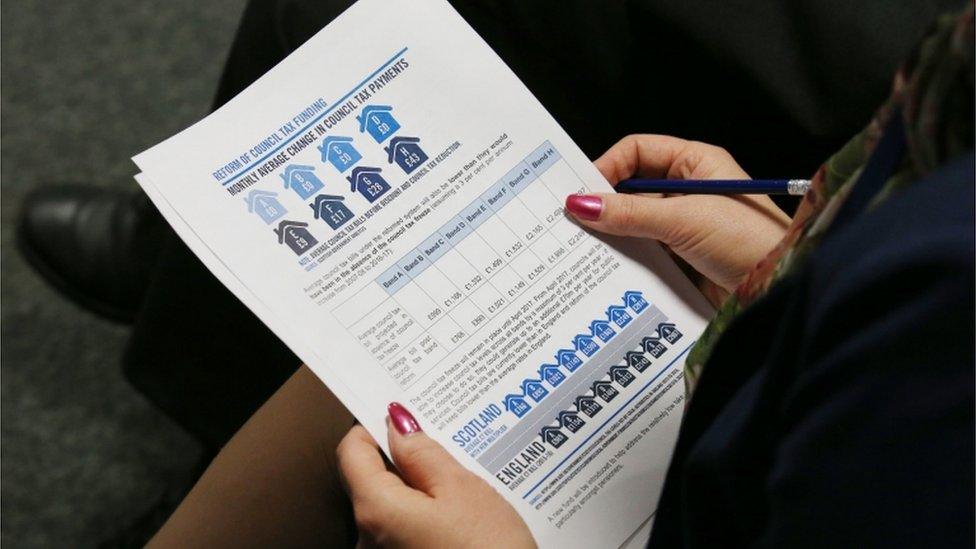
The government proposals would see council tax rise for properties in bands E, F, G and H
The motion ultimately passed by four votes to two, with Ms Smith joining the three SNP members and Mr Wightman abstaining.
The committee will now compile a report on the issue for parliament, while it will be down to the parliamentary bureau to decide if there needs to be a further chamber debate on the issue as well as a vote.
The government was only saved from a chamber defeat over council tax in September when Labour leader Kezia Dugdale's vote failed to register.
Opposition members had successfully amended a government motion promoting its council tax reform strategy, changing the wording to condemn the approach as undermining local accountability. But the final vote on the amended motion was tied after Ms Dugdale's vote was not counted.
Revaluation 'costly'
Mr Wightman had also called for a revaluation of council tax bands during the committee debate, pointing out that the current bands were based on property values dating back to 1991.
The Green MSP said he had a constituent whose flat was in band E, but was worth £20,000 less than neighbouring flats in band B.
Labour's Elaine Smith pointed out that some council tax payers weren't even born when the council tax values of their properties were determined.
Mr Mackay said a "costly" revaluation would "take time" and could be a "shock" to many households - with some potentially facing "astronomically high" tax increases under a full revaluation.
But he said the changes to bands were "not the end of the story in terms of local tax [reform]", saying the government was taking a "balanced approach" while seeking to "make council tax more progressive".
The Scottish government has started the process of reforming local taxation following on from the Commission on Local Tax Reform, external, which called for a fairer, more transparent and progressive tax to fund local services.
Opposition members have accused the government of "tinkering" with the system rather than making bold reforms.
The Scottish Conservatives support an end to the council tax freeze and increases to the top two bands, but oppose the changes to bands E and F.
But Labour and the Greens both want to see the "hated" council tax scrapped, with Labour repeatedly accusing the SNP of abandoning an earlier promise to do so.
- Published22 September 2016
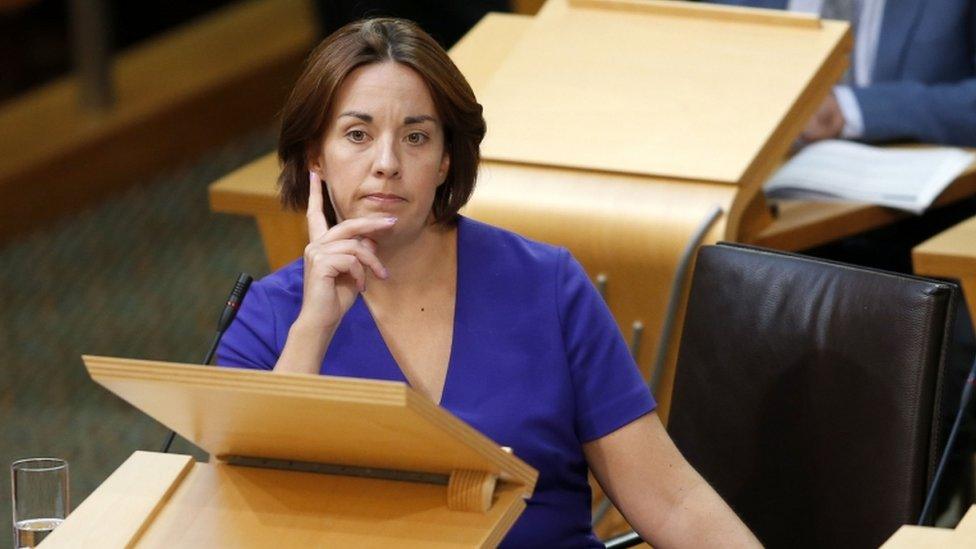
- Published6 March 2016
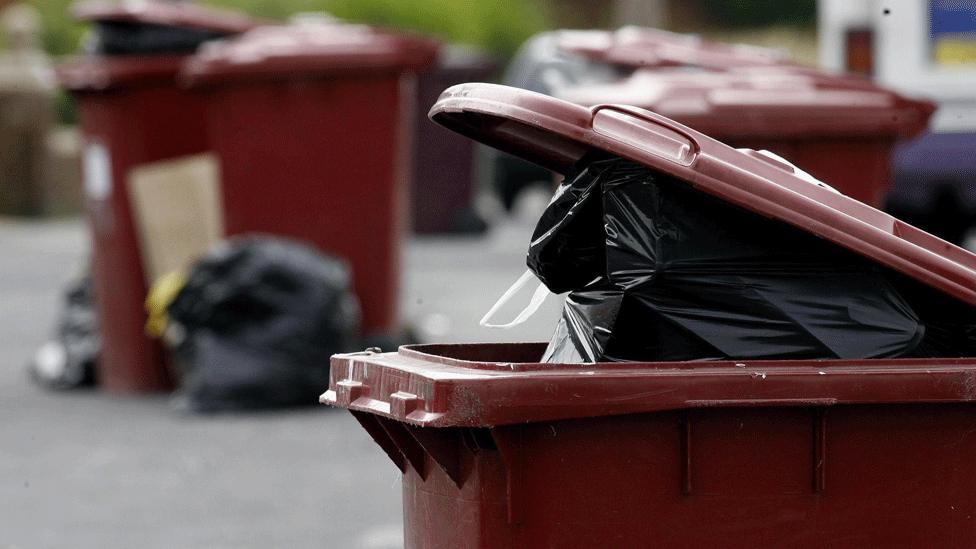
- Published2 March 2016
